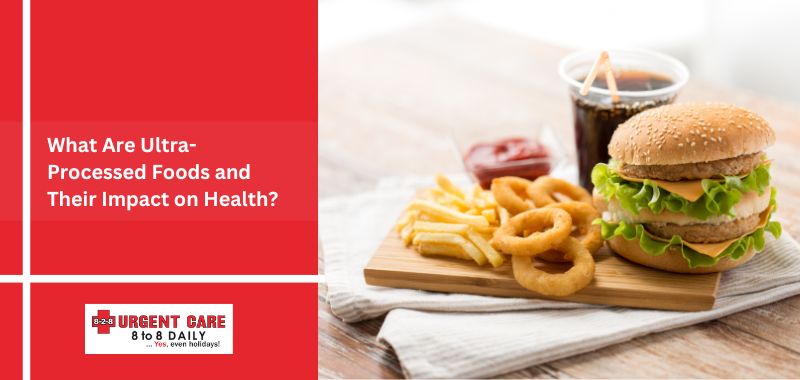


Ultra-processed foods are altered greatly with sugar, salt, chemical preservatives, and additives to increase their shelf-life.
Also, there are various agents that go into processed and ultra-processed foods, which makes them bad for our health. Hence, nutritionists and healthcare practitioners recommend refraining from processed and ultra-processed food items.
In this blog, we will explore what are ultra-processed foods and how they are bad for our health.
As already mentioned, processing any food means altering its natural state to make it suitable for storage, prolonging its shelf-life and sometimes enhancing its taste. Apart from natural processing, some foods undergo ultra-processing.
Various ingredients are added to foods like salt, sugar, fat, preservatives, chemical additives, artificial colors, etc., which are not healthy.
Ultra-processed foods contain starches, fats, hydrogenated fats and added sugars along with additives like artificial flavors, colors, and stabilizers. They are calorie-dense and don’t contain valuable nutrients.
Processed and ultra-processed foods are indeed tastier compared to unprocessed foods. Some of the most common examples of ultra-processed foods include soft drinks, frozen meals, cold cuts, breakfast cereals, hot dogs, packaged cookies, salty snacks, instant noodles, cakes, and other kinds of fast foods.
As per a study, consuming ultra-processed foods contributes to excess calorie intake leading to extreme weight gain. Along with obesity and uncontrolled weight gain, these foods also impact gut health adversely. The lack of fiber in these foods increases the ‘bad’ gut microbes. The bad gut microbiome is linked to the development of various chronic ailments along with type 2 diabetes, heart diseases, cardio-vascular ailments, cancer, and obesity.
It is also alarming that consuming ultra-processed foods leads to poor brain health. A study highlighted that people consuming such foods regularly are prone to mental health issues like anxiety, panic, depression, and so on.
Ultra-processed foods hamper the nutritional impact on the body greatly. These foods are high in calorie content but low or nil on the nutrition quotient. As a result, the body doesn’t get the essential nutrition, but piles on calories, which are difficult to get rid of.
Various kinds of nutritional deficiencies are common in people consuming processed and ultra-processed foods. Consuming whole foods and non-processed foods (nutrient-rich foods) helps in balancing the nutritional deficiency.
Try consuming a balanced meal containing all the necessary nutrients for proper functioning of the body.
Along with impacting your physical and mental health, ultra-processed foods impact the food system and have serious environmental consequences.
Ultra-processed foods are counterproductive to maintaining a sustainable food system. Moreover, a study says that the rapid surge of ultra-processed foods and the global industrial food system is impairing biodiversity severely.
Processed foods are indeed convenient and easy. But they come with their share of woes. You can cut back on ultra-processed foods with these tips:
Cutting off ultra-processed foods from your diet might be difficult as we are all so used to it. Keeping the health hazards and other risks in mind, be prompt in making healthy choices.
Make sure you remain aware of what you are eating and make informed decisions accordingly.
Discover the impact of Ultra-Processed Foods on your health and trust 8-2-8 Urgent Care for expert solutions. At our Oceanside, California location, our specialized providers are ready to address your health concerns. We offer fast relief and skilled pain management, treating everything from minor discomforts to urgent medical needs. Take control of your well-being today—contact us today, and our staff will walk you through our online check-in from the convenience of your home! Call (760) 216-6253.